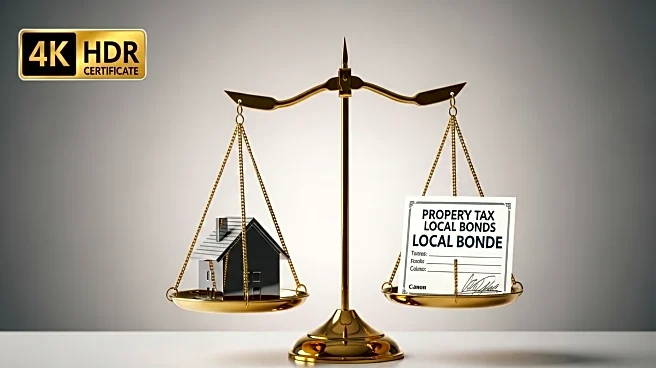What's Happening?
Indiana's recent property tax legislation has raised concerns among credit rating agencies about the potential impact on local bonds. The law, aimed at curbing property tax growth, has introduced uncertainty for local income tax-backed debt. S&P Global Ratings has flagged the new provisions, which limit local tax growth, as potentially detrimental to the credit ratings of cities, towns, and counties. The legislation allows municipalities to impose their own income tax rates, capped at 1.2%, but requires annual recertification, adding to the uncertainty. State lawmakers are considering a follow-up bill to address these issues in the next legislative session.
Why It's Important?
The uncertainty introduced by the property tax bill could affect the financial stability of local governments in Indiana. If credit ratings are downgraded, municipalities may face higher borrowing costs, impacting their ability to finance essential services and infrastructure projects. This situation could lead to increased local taxes or reduced services, affecting residents and businesses. The legislation's impact on local government finances highlights the need for careful consideration of tax policy changes and their broader economic implications.
What's Next?
Indiana lawmakers are planning to address the issues raised by the property tax bill in the upcoming legislative session. Discussions are expected to focus on modifying the law to provide more stability for local governments and their financial planning. The outcome of these discussions will be crucial for municipalities as they navigate the potential financial challenges posed by the current legislation.









